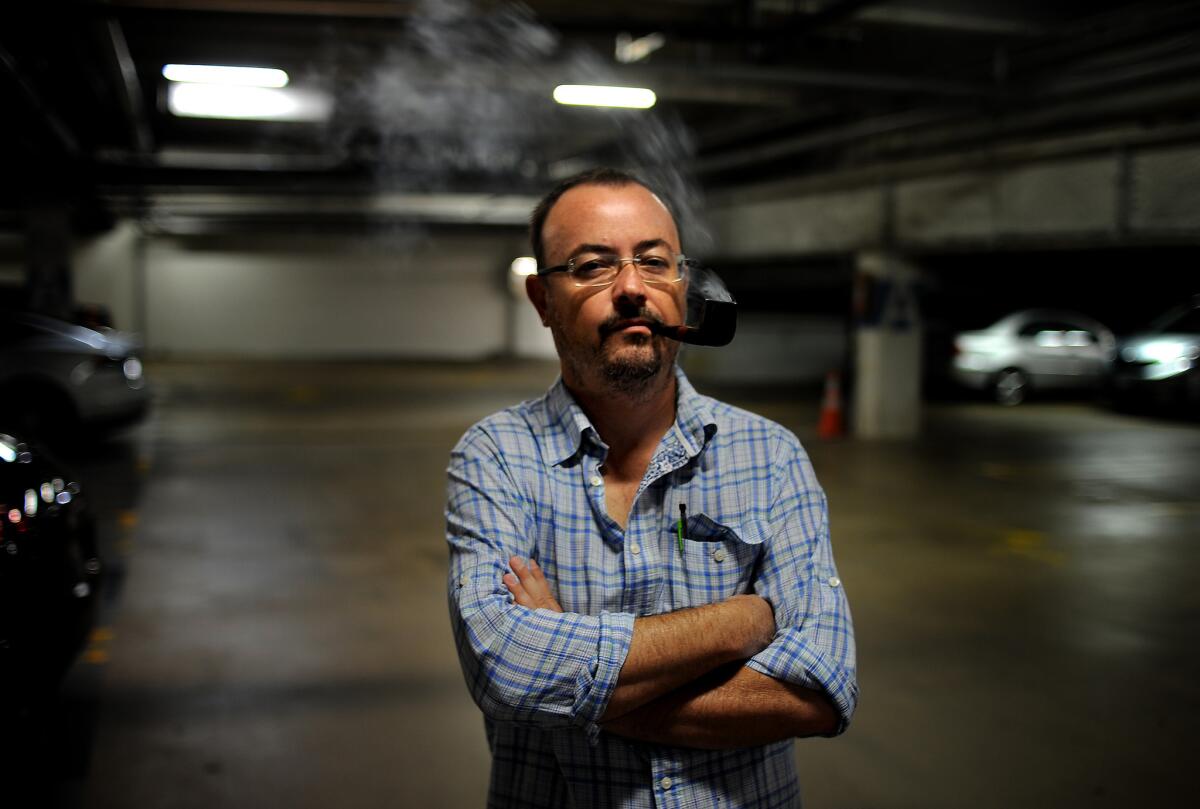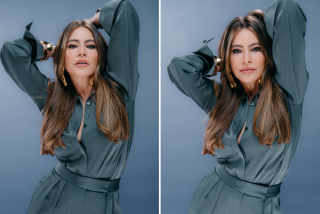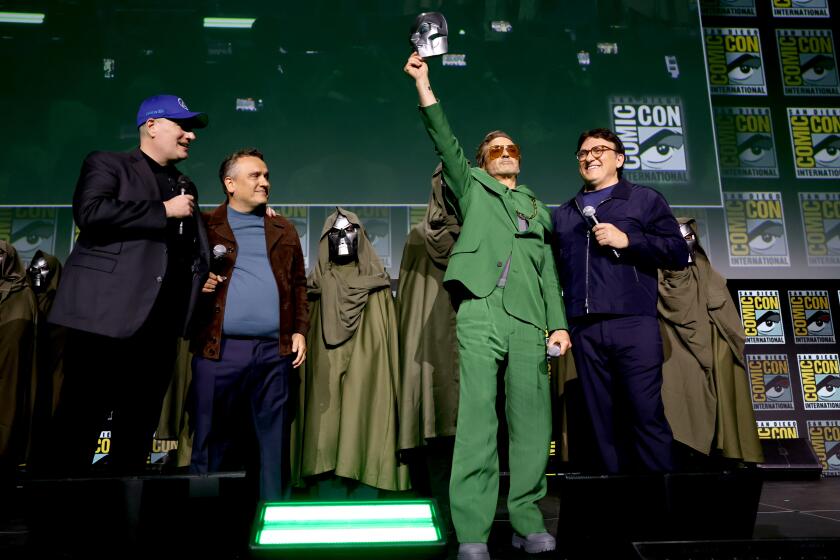Director Manuel Martín Cuenca finesses a taboo subject in ‘Cannibal’

Spanish director Manuel Martín Cuenca likes to explore the dark side of humanity — what he describes as “the borders within human beings” — in his films.
His 2010 film “Half of Oscar” dealt with incest. He takes on another taboo subject in his latest film, “Cannibal,” and well, you can guess where that one goes. But the thriller, which revolves around a seemingly normal man with a successful job who stalks, butchers and eats women, is more subtle than that topic might suggest.
Human beings, Cuenca said in an email interview, are “very fragile. Our equilibrium is very delicate and can break very easily. We’re capable of the best and the worst, sometimes almost at the same time. We’re complex and therefore fascinating. Dig deep into anyone and you will find fascinating secrets.”
Nominated for several Goya Awards, Spain’s equivalent of the Oscars — and winning the trophy for cinematography — “Cannibal” debuts Friday on VOD, iTunes, Amazon Instant and other digital platforms. And Cuenca will be doing a Q&A at a special screening of the film at 5 p.m. Saturday at the Cinefamily at the Silent Movie Theatre.
“Cannibal” is far from an exploitation film. Carlos (Antonio De La Torre) is not at all cut from the same cloth as Hannibal Lecter. There are no fava beans and Chianti. There’s just one slight trickle of blood in the entire film.
Carlos is a well-respected, quiet tailor in Granada, who just happens to have a refrigerator full of “meat.” After his Romanian neighbor becomes his latest victim, her twin sister comes looking for her. Instead of wanting to kill her, though, Carlos finds himself falling in love with her.
“He always makes the viewers really involved in the story and the characters without sensationalizing the subject matter,” said Rebeca Conget, vice president of acquisitions and distribution for the film’s U.S. distributor Film Movement/Ram Releasing. “I thought ‘Cannibal’ was just great and defied genre expectation. The most horrifying scene is where he’s sitting down and eating the ‘steak.”’
This ability to terrify audiences with such a simple gesture, said Conget, is what is “so brilliant about Manuel’s directing and Antonio’s acting. To be able to get that reaction from an audience without any violence is just so intelligent.”
Cuenca describes “Cannibal” as a demon’s love story.
“Carlos, just like the devil, crossed the line at some point in his life and turned into a demon,” said Cuenca.
“But the devil, according to Christian mythology, remains an angel, a fallen angel from the sky. He practices evil, but knows and understands good nature. He’s not a psychopath and therefore, possesses the ability to understand others. If the devil fell in love and if through love he understands the feeling of compassion, what would happen?”
It was Cuenca’s co-writer, Alejandro Hernández Diaz, who suggested the novel by Humberto Arenal as a possible project. “Its difficulty and folly was precisely what attracted us the most,” said Cuenca.
“How do you write a film like that? How do you succeed in making the audience understand the story and the drama within the character? Perhaps we’re truly crazy and that’s why it’s fascinating.”
Still, the screenplay differs greatly from the novel of the same name. In the book, Carlos was not a tailor, there were no twin sisters and the action was set in Cuba.
“It seemed to me like a very hard story, so I had to bring it to my own territory, my country, my culture,” Cuenca said. “That’s why we shot in Granada, which constitutes an important part of my life. I wanted to make a film that came out of my culture’s heart. I am an atheist and a Christian because I received a very strong Christian education growing up, which has influenced my whole life. The movie changed from the very early moment we began playing with all of these elements and little by little we started to find the story.”
During that process, the pair decided not to explain why Carlos turned to cannibalism.
“To explain who the character is, why he is the way he is, and unveil his trauma, would surely appease the audiences’ conscience,” Cuenca said. “It makes them say ‘poor monster, this guy! Luckily I’m not like him!’ But here we were looking for the opposite effect. We wanted to strike the spectator’s conscious, to agitate him and make him uneasy.”
Carlos, said Cuenca, “could be your dad or husband or friend. Carlos eating female flesh every night at the table with his utensils and civilized manners is each and every one of us every evening.”
Twitter: @mymackie
More to Read
Only good movies
Get the Indie Focus newsletter, Mark Olsen's weekly guide to the world of cinema.
You may occasionally receive promotional content from the Los Angeles Times.











